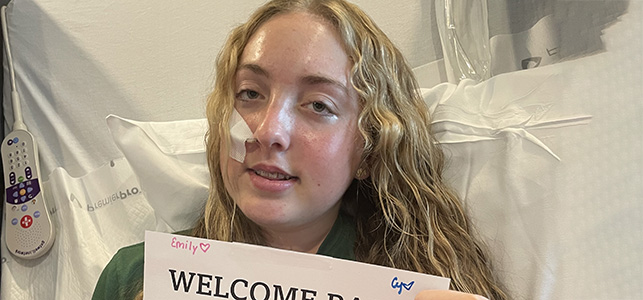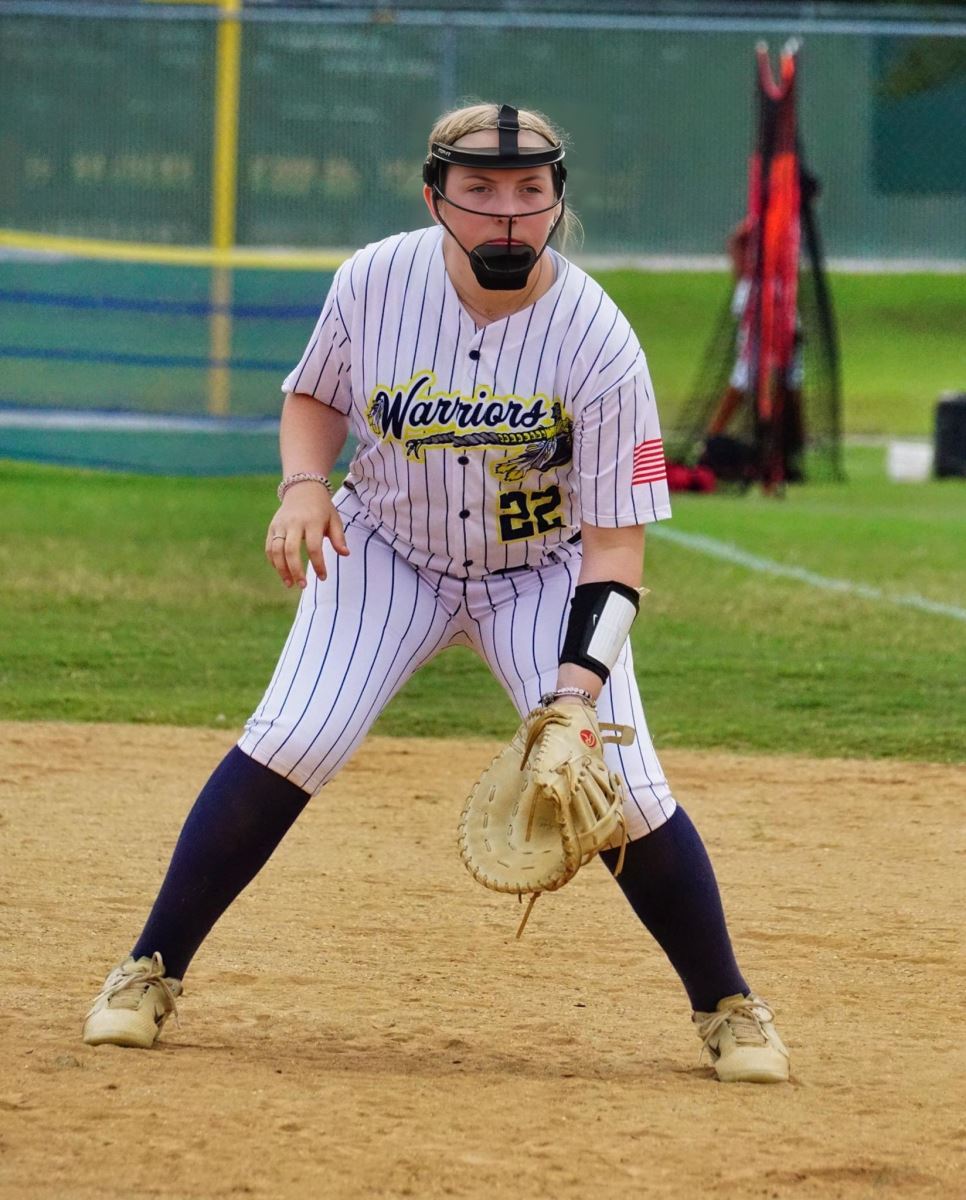
Once unable to walk, speak or eat, Paige is back on the softball field and planning for her future
When Kristi Marshall’s now 15-year-old, normally healthy daughter, Paige, began having unusual headaches in February 2024, Kristi was concerned. Not long after, Paige started experiencing tingling in her fingers, staring off into space and making strange movements with her lips and mouth.
Paige’s symptoms were diagnosed as migraine headaches, but Kristi said her motherly instinct told her, “something wasn’t right.” They decided to come to CHoR where Paige was admitted to the Children’s Tower after doctors confirmed she was having seizures. During her 4-week stay at CHoR, Kristi recalled that Paige “wasn’t herself” as she began having hallucinations, delusions, agitations and anxiety. She underwent several tests including a spinal tap, which eventually confirmed the diagnosis of anti-NMDA receptor encephalitis.
A rare autoimmune disorder and the right pediatric neurosciences care at CHoR
Formally identified less than 25 years ago and chronicled in the book, “Brain on Fire,” anti-NMDA receptor encephalitis is a rare autoimmune disorder where the body’s immune system mistakenly produces antibodies that attack the NMDA receptors in the brain, causing inflammation and a range of neurological and psychiatric symptoms. The condition is more common in females and is often associated with a rare teratoma tumor in the ovaries, which Paige did not have.
Paige’s doctor and child neurology resident, Dr. Mehreen Shahid, prescribed a high dose of steroids and IVIg antibodies to reduce the inflammation. As her symptoms improved over the next two months, doctors began weaning her off the medication. By May her seizures returned, and she was readmitted to CHoR, where she spent three weeks on a ventilator in the pediatric intensive care unit. Kristi rarely left her side.
Because NMDA receptors are crucial for learning and memory, Paige also lost her memory and the ability to walk, speak and eat. After 6 weeks at CHoR, which included more high-dose steroids and a plasma transfusion, Paige moved to an inpatient rehabilitation facility where she was determined to regain her abilities and as Kristi said, “get back to herself.”
Recovery and a return to the softball field
 Throughout Paige’s illness and recovery, she was supported by her family, friends, teammates from her travel and school softball teams and even some people whom she never met. Although Paige missed the spring and summer 2024 seasons, Kristi designed purple t-shirts featuring the number 22 that Paige wore on her Warriors travel team to boost her spirits. When Paige returned for the fall season, she quickly relearned the mechanics of the sport but struggled to regain her confidence – until she hit her first home run.
Throughout Paige’s illness and recovery, she was supported by her family, friends, teammates from her travel and school softball teams and even some people whom she never met. Although Paige missed the spring and summer 2024 seasons, Kristi designed purple t-shirts featuring the number 22 that Paige wore on her Warriors travel team to boost her spirits. When Paige returned for the fall season, she quickly relearned the mechanics of the sport but struggled to regain her confidence – until she hit her first home run.
“That changed everything,” Kristi recalled. “She was back.”
In maintenance mode, Paige is marking teenage milestones
In January, Paige got her driver’s permit and is eagerly practicing and preparing to get her license later this year. She returned to the field this spring to play for her school’s softball team and began honing her skills for this summer’s softball showcases where she had the chance to perform for college scouts. She sees her neurologist every 3-6 months and will continue receiving an infusion of maintenance medication every 6 months for another year. She will also need yearly pelvic MRIs to ensure there is no teratoma. She’s weaning off her final seizure medication and has been seizure free for more than a year.
Although Paige doesn’t remember a lot about the time leading up to and during her diagnosis and hospital stays, Kristi knows it’s important to share Paige’s story to help others who may experience similar symptoms.
Making a difficult time less stressful in the hospital
Kristi said the team and amenities at CHoR made a very difficult time a little less stressful. As a teaching hospital, CHoR had several physicians including fellows and residents who considered rare diagnoses as they focused on Paige’s care. There were child life specialists who explained the situation to Paige’s younger siblings, and sleeping rooms and food provided through the in-hospital Ronald McDonald House.
“Those touches took a huge burden off my shoulders,” said Kristi, who remains in touch with some of the nurses who supported her throughout Paige’s illness. “I’m glad I found CHoR. The fact that CHoR had experienced this type of illness before made such a difference!”
By Alissa Poole
To learn more about supporting rare disease care and research, contact Payton Hardinge at phardinge@chfrichmond.org.
